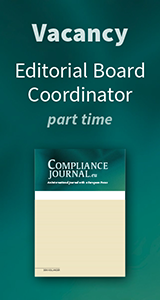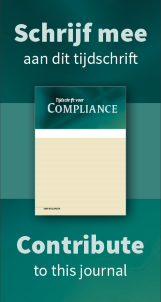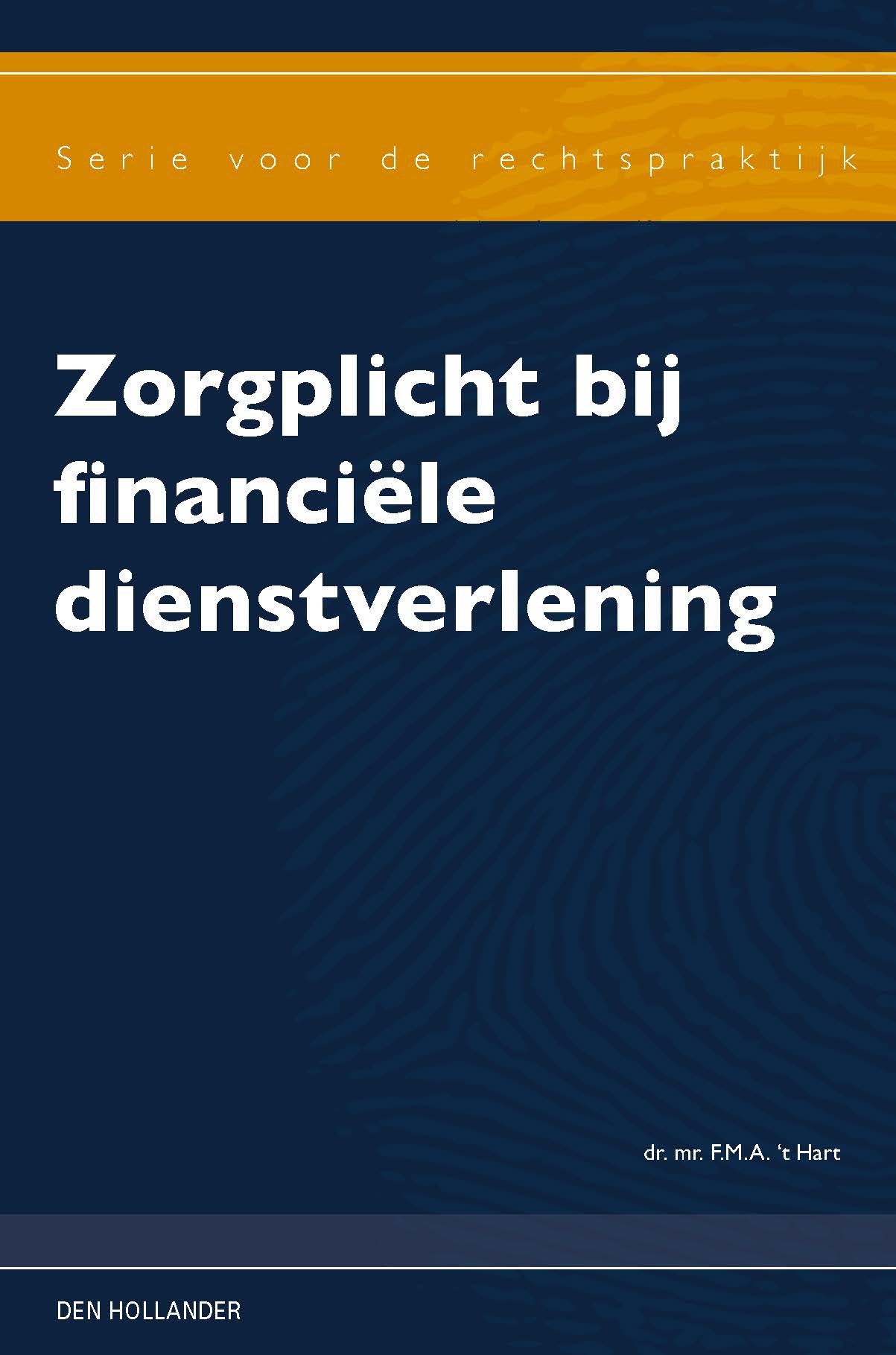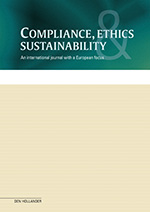Sanctions
S. Curtis, mr. L.J.A. Schut, mr. F.T.G.J. Segers en prof. mr. dr. B. Snijder-Kuipers Het artikel is in de opmaak van het tijdschrift rechts als pdf beschikbaar.This is the first combined issue one and two of the Compliance, Ethics & Sustainability journal of 2025 with a focus on Sanctions. This edition aims to provide new insights and perspectives on this matter.
Every day, banks screen countless transactions for signs of financial crime like money laundering of terrorist financing. However, a high percentage of alerted transactions are false positives, meaning they can be shown not to be instances of financial crime. Transactions by individuals or companies may be mistakenly flagged as 'anomalous', or a name may be matched incorrectly with that of a sanctioned entity or person. This inaccuracy, combined with the specific methods by which banks screen transactions, creates a risk of discrimination. Yet oftentimes it is the legislator or regulator that mandates the use of such methods. In his article, 'A critical analysis of discrimination in screening and monitoring transactions' Professor Tom Loonen of VU explores how transaction monitoring and sanctions screening work, and where potential human rights issues may lie. Tom examines several key rulings of the Netherlands Institute for Human Rights that deal with these problematic practices and offers his recommendations for minimising the risk of discrimination.
The EU has introduced explicit compliance obligations in its 14th Russia sanctions package, marking a shift from just prohibiting certain economic activities to also mandating how businesses must ensure compliance. Previously, operators had to adhere to sanctions but were not given clear regulatory requirements on implementation within the regulations. The evolving framework extends beyond sanctions regulations to broader EU legislation, including anti-money laundering, instant payments, and crypto-asset transactions. This fragmented approach risks resulting in overlapping yet incomplete obligations, uncertainty, and administrative complexity. Financial institutions face multiple layers of compliance rules, while other sectors remain underregulated. The article by Nathan Oostindjer 'A new era of regulating EU sanctions compliance: a fragmented framework' examines these regulatory developments, their scope and their impact on businesses. To improve enforcement and prevent circumvention, a more unified EU compliance framework is necessary. A risk-based, harmonized approach would reduce inconsistencies, enhance clarity for businesses, and ensure sanctions are more effective in practice.
In the article with the title 'the (partial) intersection between sanctions and AML', Xavier Codina García-Andrade and Santiago Fernández Tourné outline the new obligations for AML-regulated institutions to manage and mitigate the risks associated with anti-money laundering, financing of terrorism and non-compliance with international sanctions. The goals of the new European legislation is to unify anti money laundering and sanctions compliance within the EU. The authors point out that the intersection is partial and not without controversy. This article describes and analyses some of the main problems relating to this new legislation.
In their article 'EU Sanctions Compliance in the Global Context: A Roadmap for the Effective Implementation of the Best Efforts Obligation' the authors JanDunin-Wasowicz and Sebastiaan Bennink discuss the "best efforts" obligation introduced in several EU sanctions regulations concerning Russia and Belarus. This obligation requires EU operators to ensure that their non-EU entities do not undermine EU sanctions. Initially seen as aspirational, this clause is now an enforceable legal requirement, placing a significant burden on EU operators to implement adequate compliance steps globally. The article highlights the global expansion of EU sanctions since Russia's invasion of Ukraine in 2022, emphasizing the innovative and unprecedented measures taken by the EU. The "best efforts" clause raises numerous theoretical and practical questions, formally placing EU operators under a new obligation to ensure that they take adequate preventive compliance steps wherever they operate in the world. The authors provide practical guidance for EU operators to roll out and evaluate the implementation of the best efforts obligation. This includes performing risk assessments, developing policies and procedures, training staff, and monitoring compliance. The article concludes that the best efforts obligation represents a new normal in EU sanctions compliance, requiring proactive steps and continuous monitoring to ensure adherence.
The article 'EU embrace of extraterritoriality and the challenges ahead' by Lior Delfassy examines the legal basis and challenges associated with the "best efforts" obligation and the "No Re-export clause". While these provisions impose contractual and compliance obligations on EU-based companies, they also raise questions about their extraterritorial enforcement, legal consistency, and the potential for legal challenges before EU and international courts. By analysing the intersection between EU sanctions law, international jurisdiction principles, and corporate liability, this article explores how these new measures might be challenged and what legal arguments could be used to contest their enforcement beyond EU borders.
A famous quote from Benjamin Franklin reads "by failing to prepare, you are preparing to fail", emphasizing the critical role of preparation in achieving success. In today's fast-paced and complex society, there are many aspects that can have a significant impact on an organization, such as natural disasters, cyber-attacks, fraud and – case in point – sanctions breaches. Sanctions breaches represent a risk that can be overcome by proper preparation. Implementing a sanctions breach protocol can greatly enhance the organization's readiness in this respect. In their article 'Developing a sanctions breach protocol'PatrickÖzer, Monica van Santbrink and Jori van Schijndel explore some of the triggers behind sanctions breaches. They also explain why a sanctions breach protocol is essential and describe the setup of such a protocol, and go through the actions to be taken after a breach occurs.
An in-depth interview withAlan Morley, Director at Huron Consulting Group, covers the role of emerging technologies in sanctions compliance. Morley talks to us about the application of entity resolution systems, the use of AI and machine learning in sanctions screening, and the operational challenges financial institutions face in managing high volumes of data under regulatory constraints. Morley outlines the technological, procedural, and governance aspects of implementing compliance systems, with particular reference to sanctions following geopolitical events, such as the Russian invasion of Ukraine. The interview also touches on differences in regulatory approaches to AI across jurisdictions, the risks associated with automated decision-making, and the role of data quality in enabling effective compliance. Case examples from traditional finance and niche areas such as crypto and trade finance help illustrate how institutions are responding to increasingly complex risk environments.
In their article 'Economische sancties en de rol van banken; over wettelijke verplichtingen, uitdagingen en kansen' the authors Matthijs Simons, Paul Wilbrink, Mariëlle Boezelman and Floor van den Berg focus on the sanctions topic from the perspective of banks. They elaborate on the legal obligations, the challenges as well as the opportunities. More specifically, they focus on the use of technology, making sure you know the client (and it's client) as well as the importance of explaining the client why action is being taken instead of referring simply to the legal obligation.
A large number of books and articles appear in business ethics that address pressing issues in a practical way and make concrete recommendations for promoting the ethics and integrity of organizations and their employees. Not everyone knows where to find these publications or has time to read them. That's why Edgar Karssing discusses articles and books in this area and writes about them. In this issue Edgar Karssing published the first part out of two articles on power and ethics. In the two articles Edgar highlights several questions and perspectives related to this theme. In this first article the attention is focused on (i) the use and necessity of power for ethics, (ii) the power paradox by Dacher Keltner and (iii) the ethics of the use of power.
We hope you find this issue insightful and engaging.
Sam Curtis, Linda Schut, Frank Segers & Birgit Snijder-Kuipers




